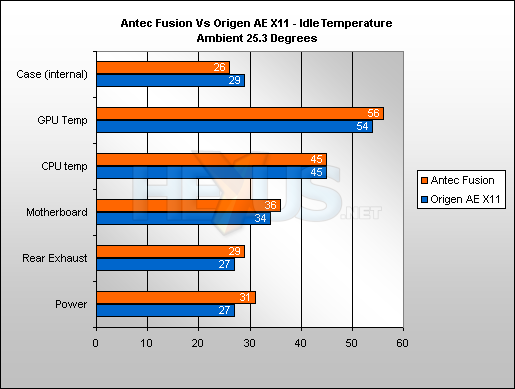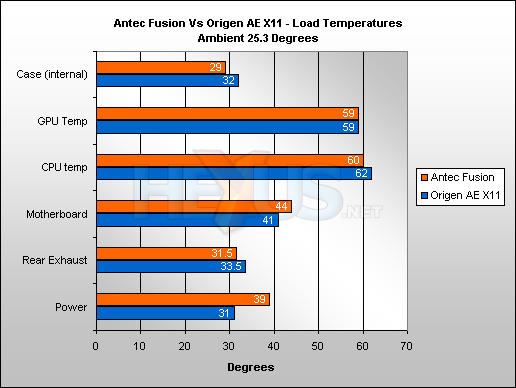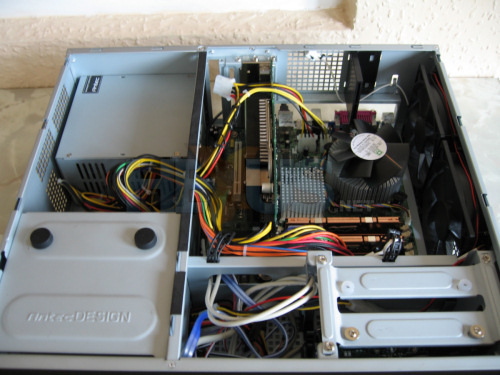Thermal Performance
We previously mentioned the three chamber system that Antec has incorporated into the Fusion and now we get the chance to see just how effective it really is.For all our reviews we now have a preset component list designed to push any chassis to the limit, this is intentional and is to show just how capable any chassis is when fitted with the hottest hardware out there.
In order to put the system under the maximum load a double run of 3D Mark ’06 was executed and followed up by 3 consecutive burn-in tests using SiSoft’s Sandra Pro 2007.
In order to give a comparison we pitched the Fusion up against the soon-be-reviewed X11 from Origen AE – two specifically designed HTPC chassis going head to head.
| HEXUS Chassis test equipment specification- MATX/ATX | |
|---|---|
| Motherboard | Intel D916GUX/Intel 955XBK |
| Processor | Intel Pentium 4 570J (3.8GHz)/Intel Pentium EE 840 (3.2GHz) |
| Memory | 2GiB (2 x 1GiB) OCZ DDR2 PC4200 Value Pro Dual-Channel |
| Graphic Card | ASUSTek GeForce 6800 256MiB Ultra PCIe |
| Power Supply | Antec Neo HE 430W |
| Hard Drive | Seagate Barracuda 160GB SATA |
| Optical Drive | Pioneer 110 DVD Re-Writer |
Above shows how the chassis looked just before the lid was fitted and moved into the lab for testing.
Idle Temperatures

At idle the Fusion doesn’t seem to fair too well, its all-steel construction seems to have it at a disadvantage over the pure-aluminum Origen AE X11, but at the same time the readings aren’t that far apart and given the components we are running here are high end the Fusion actually does surprisingly well considering.
Load Temperatures

The Fusion does perform slightly better under load, with the thermal chambers and air configuration coming into its own. The only real temperature concern here for us was the power readings, an 8 degree jump compared to the 4 in the Origen AE X11 does begin to show that the lack of air flow in the PSU chamber does have a noticeable adverse effect.
Overall it has to be said the thermal performance of the Fusion is pretty good, sure its warm, but given these are very high end components with a purposely high thermal output it outgunned the case from Origen AE impressively under load.
In regards to the acoustic performance of the Fusion we found it to be perfectly acceptable, whilst our components did put the chassis under strain, the three speed fans were barely audible when on the low setting and with the appropriately passively cooled components the Fusion would be perfect for most digital home situations.










